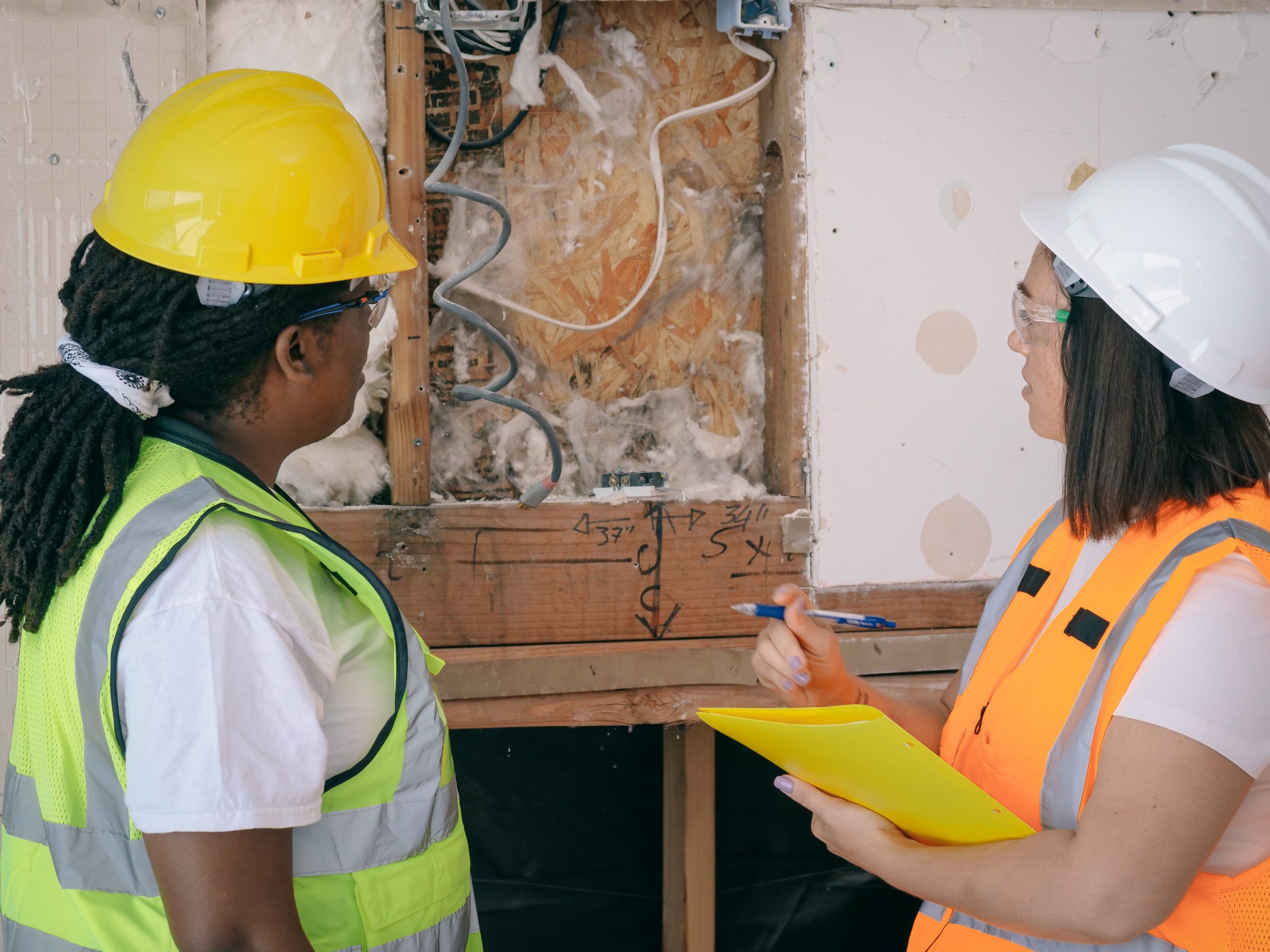Property Maintenance Operative Apprenticeship Level 2
Area
School Leavers ⓘThis course is also available under
Adult Learning
Apprenticeships
Subject
Construction
Plumbing
Campus
Duration
-
Select date to apply
Add to Shortlist
Course Overview
This occupation is found in the construction and built environment sector, where properties across the housing, healthcare, social care, hospitality, education, commercial, leisure, retail, and private and public sectors, require maintenance to keep them in a safe working condition, and to optimise their quality or performance.
In their daily work, an employee in this occupation interacts with other maintenance staff, specialist trades people, landlords and property owners, and the staff that work within or the residents that occupy buildings.
Property Maintenance Operatives assist in the location of the repair works to be carried out, and to obtain further information and clarification as required from the customer, using a range of information gathering and communication techniques, whilst recording and reporting information in a variety of ways, including using digital technologies.
An employee in this occupation will be responsible for performing planned maintenance and responsive repairs to properties, maintaining a high level of quality to the works they complete, providing maximum satisfaction to customers, clients, staff or residents within those properties.
Increasingly, property maintenance operatives are required to support in the optimisation of building performance and minimisation of environmental impact; operatives now need to record and report building information digitally, and consider sustainability and environmental choices, such as the use, recycling, and disposal of materials and components, in order to achieve net-zero carbon emissions.
The right operative will develop a broad range of fundamental trade skills including carpentry, joinery, plumbing, plastering, brick and block work, external works, and associated finishing trades including tiling, painting, and decorating. Operatives use a wide variety of hand and power tools, materials, components, fixtures, and fittings, ensuring work that is carried out is compliant with health and safety requirements, and meets building safety regulations and legislation. This requires them to know and understand the key principles of buildings and their construction, the range of building services that support a building’s operation, including electrical, plumbing, plant, safety systems and equipment, and the techniques, and processes to prevent damage. Operatives are also keenly aware of the limits of their own competence and will respond appropriately to, and report faults and defects to others as necessary
Units of study/what is involved
- Support the planning, preparation and delivery of property maintenance tasks in accordance with building safety regulations and legislation
- Create a safe working environment by implementing the necessary control measures, through the identification, mitigation and reporting of risks and hazards, and in line with health and safety legislation, policies and procedures
- Access and utilise appropriate work plans, job sheets, specifications, drawings/diagrams, information & data sheets, taking in account factors such as regulatory requirements and legislation, performance and quality criteria, efficiency, sustainability, and the need to reduce waste
- Select, check, use and maintain tools, equipment, materials, components, compounds and parts appropriate to the task being undertaken, handling, positioning and storing these safely, and clearing away and disposing of waste safely on completion of work, and in accordance with codes of practice
- Safely isolates electrical, electronic and emergency systems to enable property maintenance operations to be performed around isolated electrical components, and the reporting of faults as required
- Perform fault diagnostics to implement a range of minor reactive or responsive plumbing and drainage repairs to a satisfactory conclusion. Carry out preventative and corrective maintenance, minor repairs and replacement of components within water, environmental and energy management systems in accordance with current legislation, industry standards and with the manufacturers requirements
- Use carpentry and joinery skills to complete minor repairs or refurbishment to fixtures within and around properties, such as doors, windows, frames, worktops, ensuring associated fixtures and fittings are selected, installed or repaired, and working correctly
- Carry out minor plastering repairs using appropriate materials and surface finishing techniques
- Carry out remedial painting and decorating works to a range of surfaces, ensuring the appropriate and safe use of compounds, materials, tools and access equipment
- Carry out minor tiling and flooring activities or repairs using a variety of materials, tools, adhesives and sealants
- Carry out planned, responsive or temporary repairs to buildings and their immediate surroundings to make buildings safe and secure for their occupants or clients
- Communicate effectively verbally and in writing, using digital technologies to access, identify, record and report information, liaise and coordinate with other team members, and provide customer service to internal and external customers, and respecting others
- Maintain and develop competence in the property maintenance industry, recognising own levels of competence and when to escalate concerns to others, resisting the pressure to follow unsafe working practices
Assessment Methods
Formative assessments whilst in college:
- Underpinning knowledge of building maintenance and building principles
- Practical activities on various trade tasks
Workplace assessment:
- Evidence-based E-portfolio
- Multimedia evidence capture
- Observations
- Witness testimony’s
- Professional discussions
- 6 hours per week off the job
EPA summative assessment:
- Practical assessment with questions
- Interview underpinned by a portfolio of evidence
- Multiple-choice test
Progression Options
- Progress to specialise in a trade of their choosing having gained an insight into the skills required.
- Progress to leading a team of maintenance operatives for large organisations such as hotel franchises, supermarkets, hospitals, care homes, councils, and housing associations.
Typical job roles;
- Maintenance assistant
- Maintenance technician
- Multi-skilled technician
- Multi-skilled trade operative
- Property maintenance operative
- Property technician
- Team leader

Course Summary
| Course Title | Property Maintenance Operative Apprenticeship Level 2 |
|---|---|
| Entry Requirements |
|
| Attendance Requirements | Over the year you will be expected to attend college 1 day per week completing classroom and practical activities and 4 days per week in the workplace collating evidence of competence. Timesheets and evidence capture will be required throughout the entirety of the apprenticeship. You will be required to complete the duties set out in the standard with the help of an assessor coming to the workplace to help gather evidence and conduct reviews. |
| Campus | |
| Start Date |
Spotlight

I was really interested in the College because it has a good selection of tools and machinery, great tutors and I liked the workshops. It also offers courses from Level 1 to 3 in furniture making and design, which meant I could start at Level 1 and build my skills, plus I study maths alongside my course.
Additional Information
Add to Shortlist
© 2024 Bridgwater & Taunton College, Bath Road, Bridgwater, Somerset, TA6 4PZ, United Kingdom | Terms / Privacy / Cookies | Accessibility Made by Wave
How we use cookies: This website uses cookies so that we can provide you with the best user experience. To read more about the cookies we use, read our Cookies Policy.




